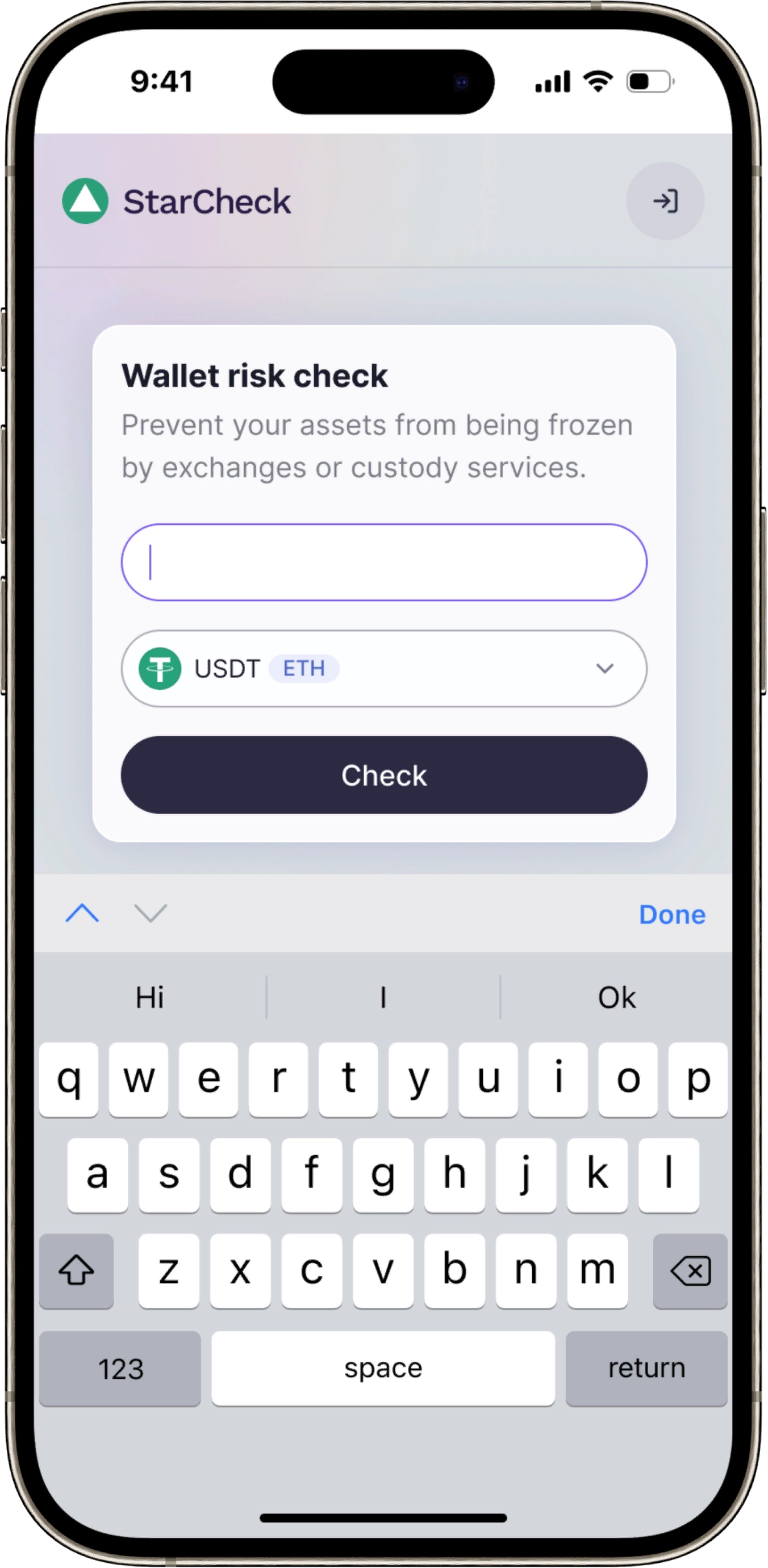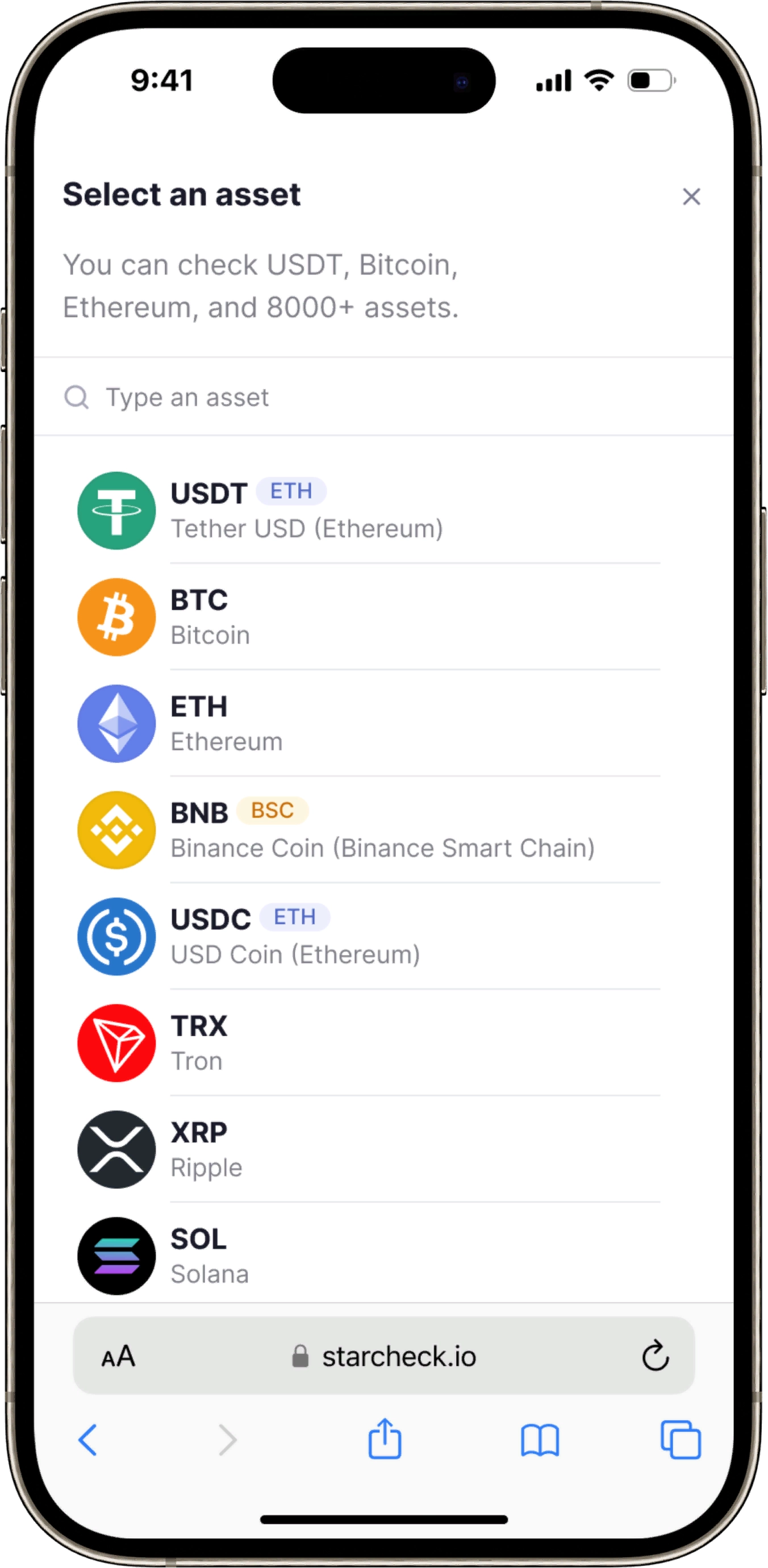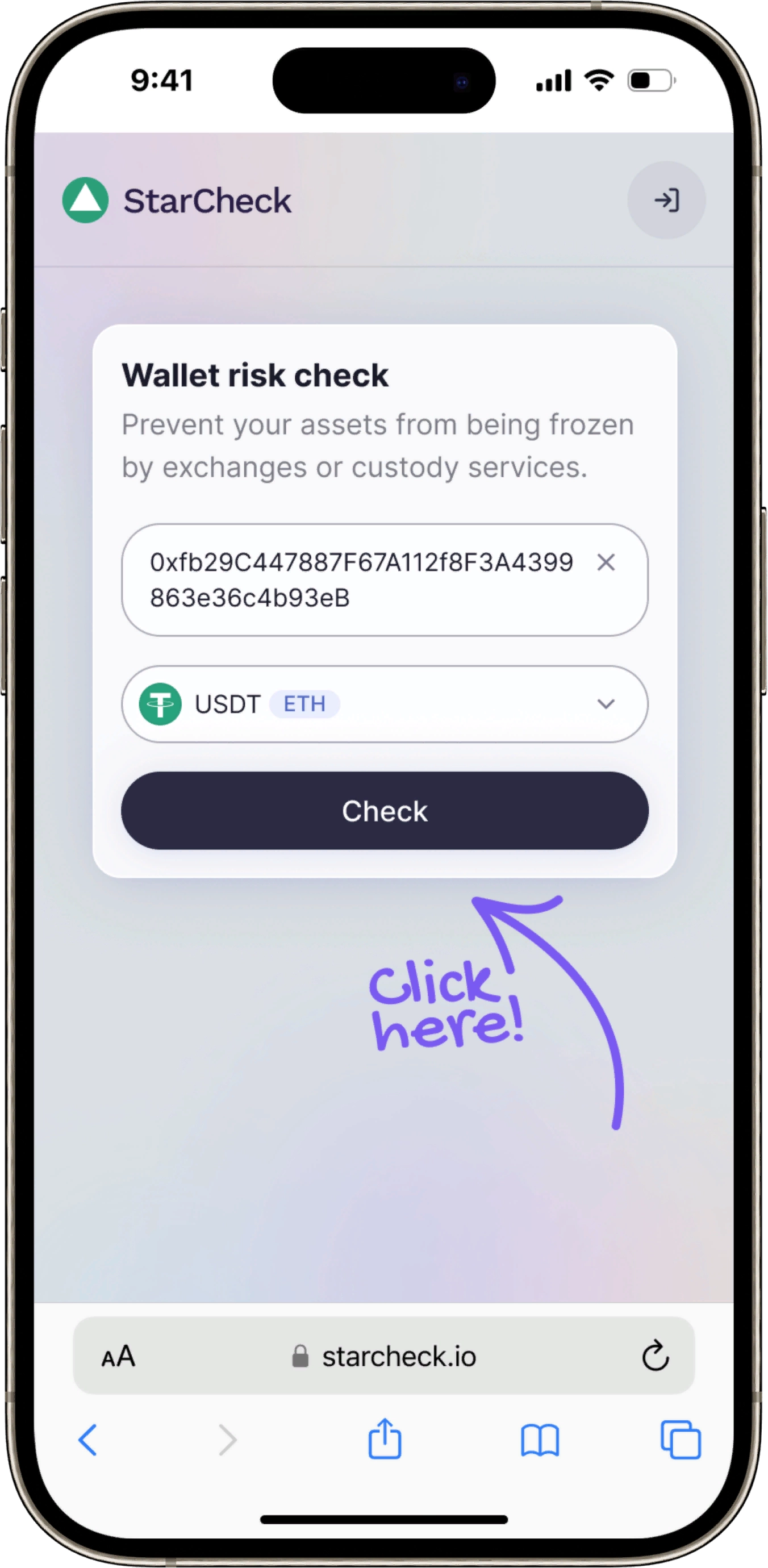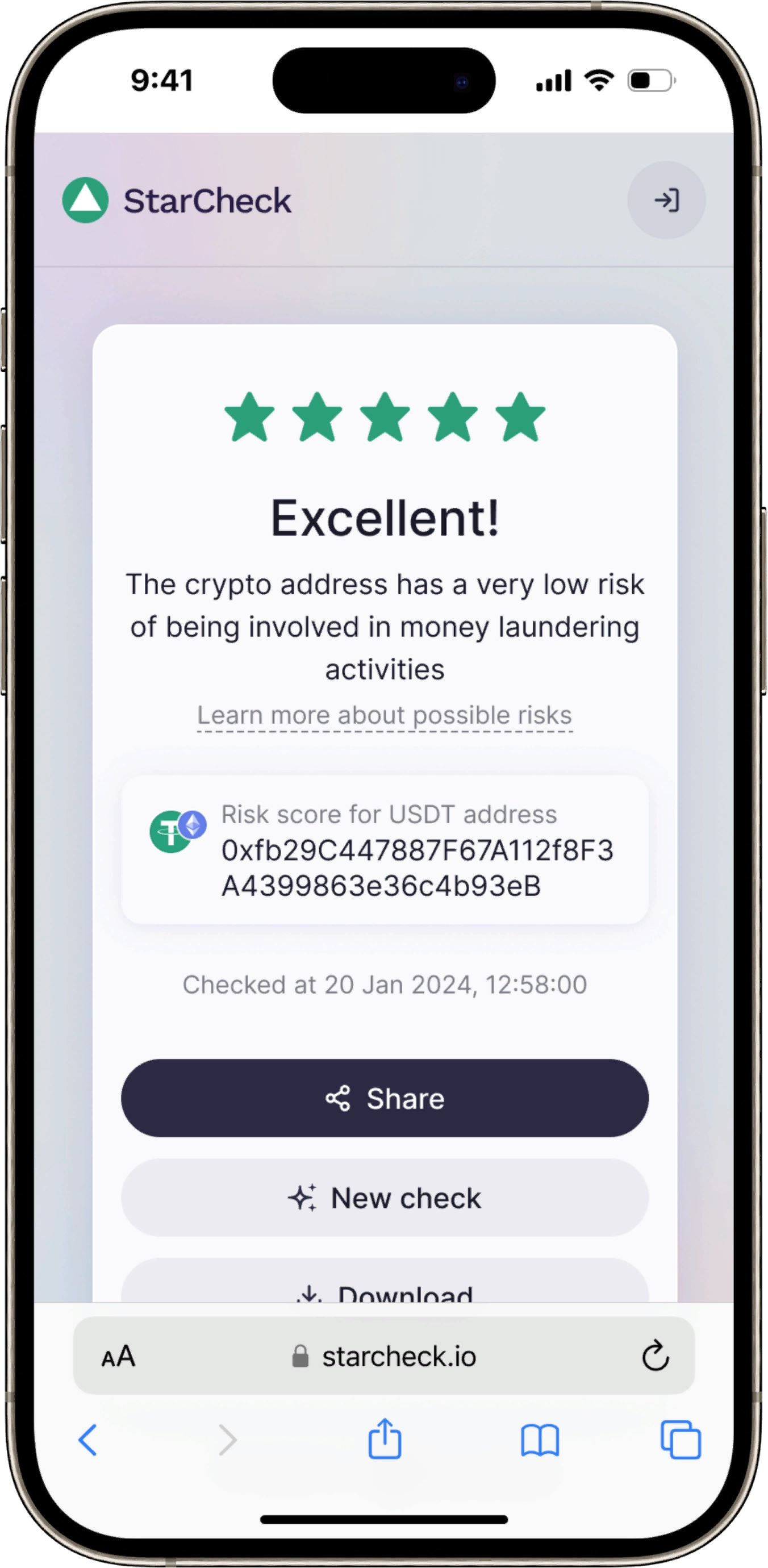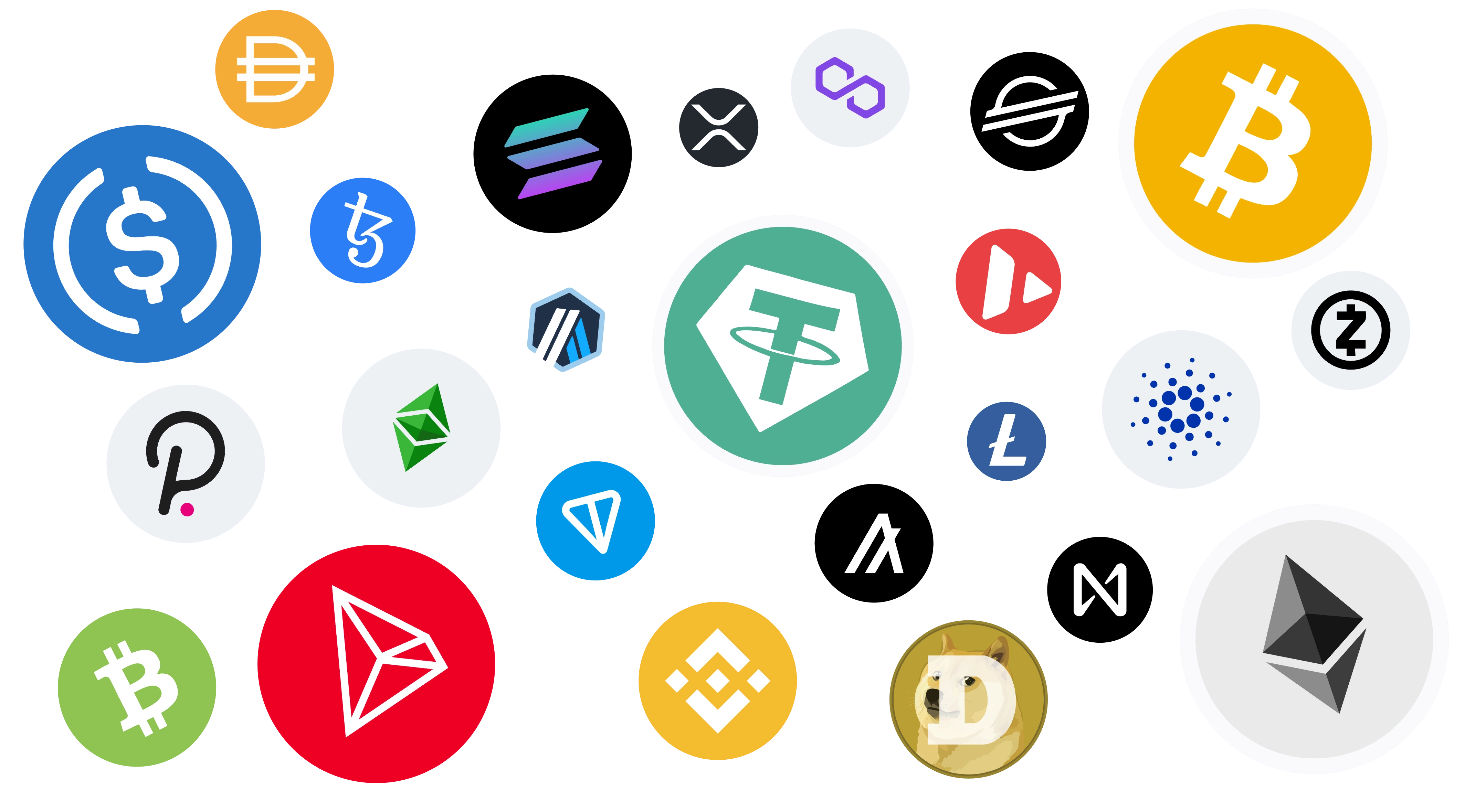Check wallet risks and protect your crypto
Prevent USDT, Bitcoin, Ethereum, and 8000+ assets from being frozen by exchanges or custody services
We will never ask for your private keys or seed phrases.
We use the same trusted sources as





Telegram AML bot
Simplify Cryptocurrency
Risk Assessment with
Our Telegram Bot
- No registration required
- Supports a wide range of cryptocurrencies
- Perform comprehensive checks in just two clicks

Protect your
funds when you
Make a P2P trade
Accept crypto as a payment
Be on the right side
Use StarCheck to reduce the risk of interacting with the counterparty
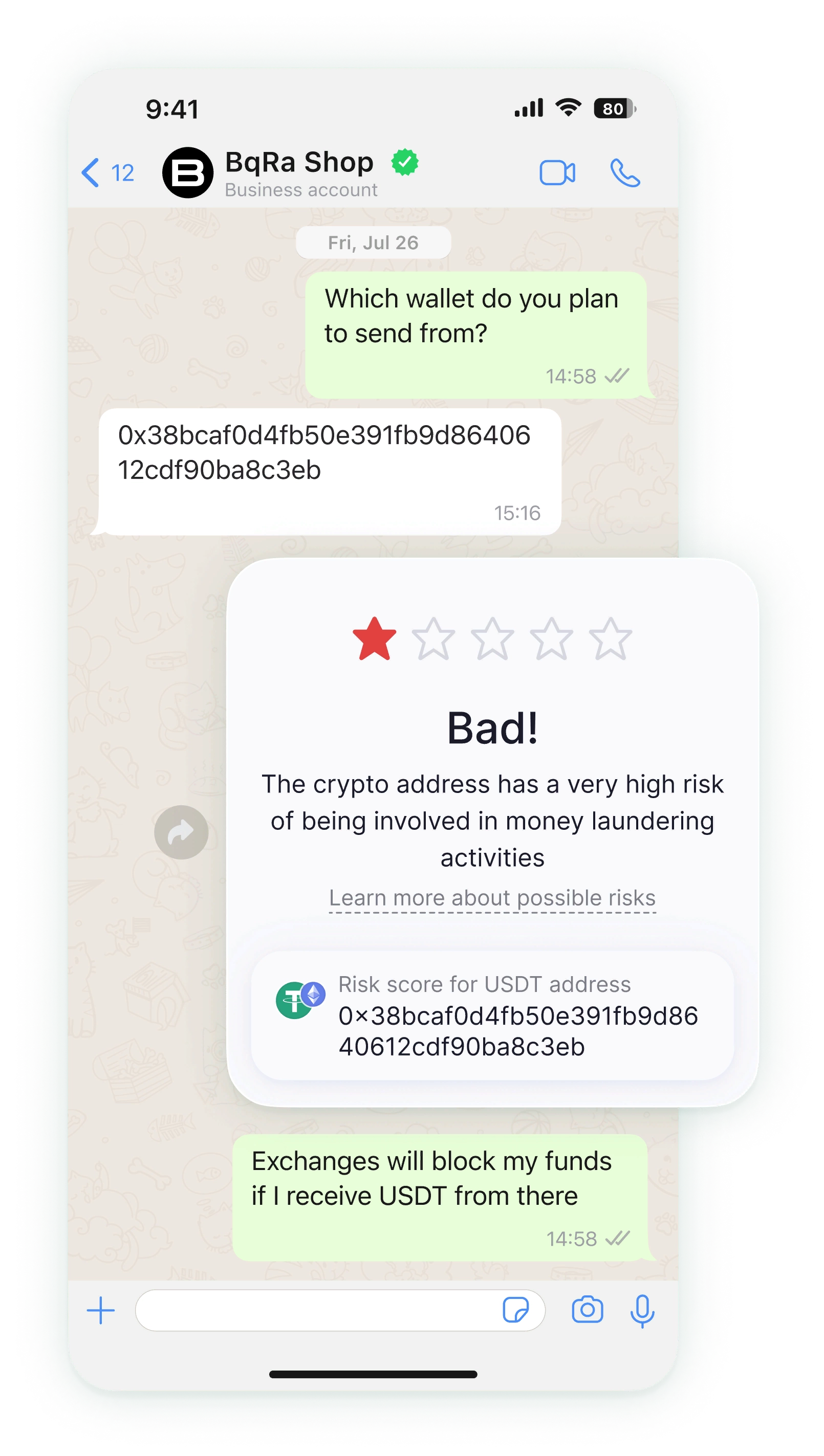
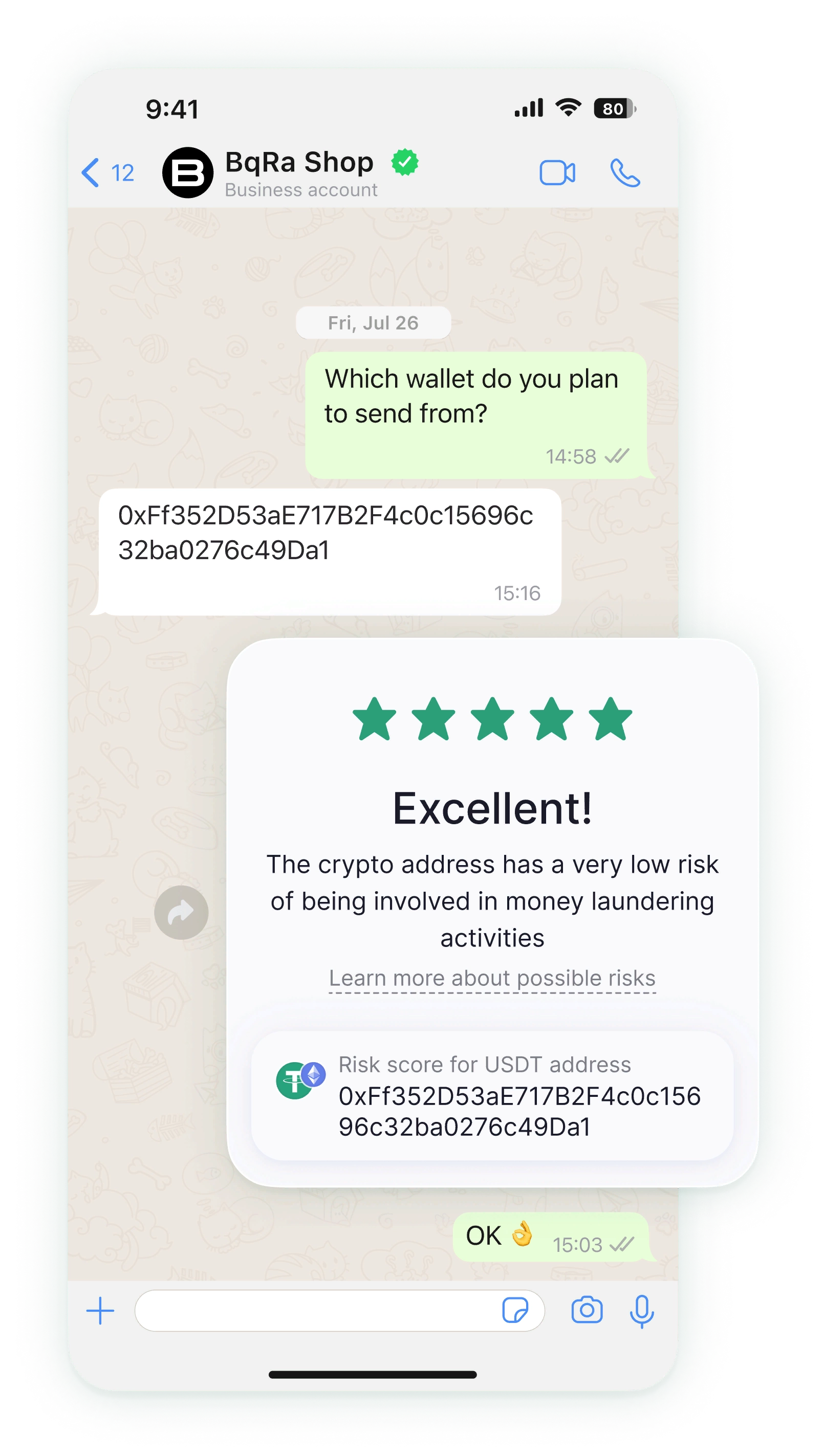
Authoritative data sources
We use the same data sources as major CEXes, wallets, and other custody servicesSigned PDF-reports
We sign every PDF report, ensuring that you receive an authentic report from your counterpartySharethe risk score
Your counterparties can see for themselves that the wallet is pureGet risk score for any asset you use
Pricing
month
3 months
6 months
year
Basic
30 checksmonth
$0.3 per check
The duration of the package offer due month
- 8000+ Available assets
- Sharable link
- Signed PDF-report
- Support
Standard
150 checksmonth
$0.2 per check
The duration of the package offer due month
- 8000+ Available assets
- Sharable link
- Signed PDF-report
- Support
Premium
400 checksmonth
$0.15 per check
The duration of the package offer due month
- 8000+ Available assets
- Sharable link
- Signed PDF-report
- 24/7 Priority Support
Price: $0.99% per check
Minimum purchase: 10 checks
Enter the desired
number of checks
And check your discount
Total price: 0$
Benefits:
- 8000+ available assets
- Sharable link
- Signed PDF-report
- 24/7 support
Note:
If the user has not used up all the checks, then the checks are transferred to the next month
If the user has used up all the checks for a month, then he can extend the Flex Plan
FAQ
Why is it important to check your wallet for risks?
When do you need to make a wallet risk check?
- Making a P2P trade: some exchanges or custody services have blacklisted or restricted wallet addresses due to involvement in illegal activities, scams, or fraud. Verifying the counterparty's wallet address can help you ensure that you are not engaging in a transaction with a blacklisted or restricted address;
- Onboarding new customers: when you onboard new customers or users to your platform or financial service, it is essential to verify their wallet addresses to ensure compliance with AML regulations. This helps prevent the risk of unknowingly facilitating money laundering or other illicit activities.
How does wallet risk checking work?
What do the stars in the check results mean?
Where can you use the wallet risk check results?
- P2P transactions: if you are involved in peer-to-peer transactions outside of established platforms, sharing the risk check results with the counterparty can help build trust and provide proof of your commitment to secure transactions;
- Exchanges and custody services: some platforms may freeze your assets if they are marked as 'dirty'. They may request additional information to clarify the source of your funds. Providing the risk check results can offer evidence regarding the source of your money and demonstrate your proactive approach to security.
